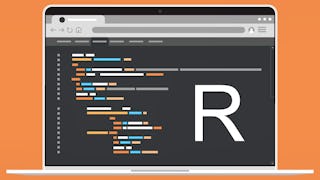We reside in a world experiencing an explosion of information, with a rapid and exponential growth of data. This surge in data captures increasing interest across various fields. Data science involves the gathering of extensive data and the fusion of domain expertise, programming skills, mathematics, and statistical knowledge to derive meaningful insights. Given the breadth and depth of data science, this course aims to furnish you with a comprehensive theoretical foundation and framework to initiate your journey in this field. "Data" permeates every aspect of data science. The course is divided into five parts, each centered around core topics related to "data". The initial part introduces data ethics, outlining the ethical issues surrounding data collection, usage, and reporting. The second part delves into data collection, acquisition sources, and data structures. The third part focuses on cutting-edge research in Data Science, immersing you in the realm of data science. The fourth part acquaints you with basic data processing using programming, specifically in R, the prevailing data analytics tool. Here, you will gain familiarity with R fundamentals, execute basic data wrangling tasks, develop an understanding of data storage and management, and gain experience in data visualization. The fifth part of the course imparts fundamental knowledge of probability and statistics, preparing you to move to the next stage of exploration.

Enjoy unlimited growth with a year of Coursera Plus for $199 (regularly $399). Save now.

Skills you'll gain
- Data Science
- Sampling (Statistics)
- Tidyverse (R Package)
- Data Structures
- Informed Consent
- Statistical Methods
- Data Ethics
- Big Data
- Data Collection
- Ethical Standards And Conduct
- Statistics
- Data Capture
- Social Impact
- Data Analysis
- R Programming
- Data Validation
- Probability & Statistics
- Data Quality
- Algorithms
- Information Privacy
Details to know

Add to your LinkedIn profile
9 assignments
See how employees at top companies are mastering in-demand skills

There are 6 modules in this course
What is data science and what activities and topics will have in data science? This module will answer the questions first, and then come to one of topics-data ethics. This module will provide a big picture about the data ethic issues within data science and focus on two critical data ethics topics, Informed Consent and Data Ownership. In this module, you will learn to define, explain, and discuss those two specific topics and identify ethical and unethical activities related to them.
What's included
12 videos8 readings2 assignments1 discussion prompt
In this module, we will focus on three important concepts in data ethics: Privacy, Transaction Transparency, and Anonymity. These concepts often intersect and influence each other. In this module, we will explain and describe each term and provide examples to illustrate how these concepts are applied in the field of data science. Special attention is given to de-identification for privacy protection in the module.
What's included
10 videos3 readings2 assignments
In this module, we will specifically discuss two important concepts: Data Validity and Algorithmic Fairness. The accuracy and bias of input data is related to data validity, which strongly influences the outcomes and fairness of algorithms. In this module, we will explore how and why inappropriate and unethical data validity can result in unfairness.
What's included
8 videos2 readings2 assignments1 peer review
Unethical activities during research design, data collections and data analysis usually lead to societal consequences. However, even if the whole procedure about data is ethical, there may still be unintended consequences due to the development of new technology.In this module, societal consequences in data science are discussed and the code of ethics in research and environmental sciences are outlined to ethically guide potential behavior of data scientists.
What's included
6 videos3 readings1 assignment1 peer review
This module focuses on the initial phase of a data science project, which involves obtaining data. Specifically, the module covers the following topics of data acquisition: identifying and describing data sources, sampling techniques for data collection, and the impact of sampling bias on research. Through these discussions, the module aims to provide a comprehensive understanding of the initial steps involved in obtaining data for a data science project.
What's included
7 videos2 readings
This module is dedicated to exploring various concepts about data, such as file formats for delivery and sharing, data types for variables’ basic nature and characteristics, and data structures for data manipulation and data analysis. The concepts of data files, data types and data structures, common data types and structures in programming languages, and specifically data structures in R, are covered.
What's included
8 videos2 readings2 assignments
Build toward a degree
This course is part of the following degree program(s) offered by Ball State University. If you are admitted and enroll, your completed coursework may count toward your degree learning and your progress can transfer with you.¹
Instructor

Offered by
Explore more from Data Analysis
 Status: Free Trial
Status: Free Trial Status: Free Trial
Status: Free Trial Status: Free Trial
Status: Free Trial Status: Free Trial
Status: Free TrialUniversity of California, Irvine
Why people choose Coursera for their career




Frequently asked questions
To access the course materials, assignments and to earn a Certificate, you will need to purchase the Certificate experience when you enroll in a course. You can try a Free Trial instead, or apply for Financial Aid. The course may offer 'Full Course, No Certificate' instead. This option lets you see all course materials, submit required assessments, and get a final grade. This also means that you will not be able to purchase a Certificate experience.
When you purchase a Certificate you get access to all course materials, including graded assignments. Upon completing the course, your electronic Certificate will be added to your Accomplishments page - from there, you can print your Certificate or add it to your LinkedIn profile.
Yes. In select learning programs, you can apply for financial aid or a scholarship if you can’t afford the enrollment fee. If fin aid or scholarship is available for your learning program selection, you’ll find a link to apply on the description page.
More questions
Financial aid available,





